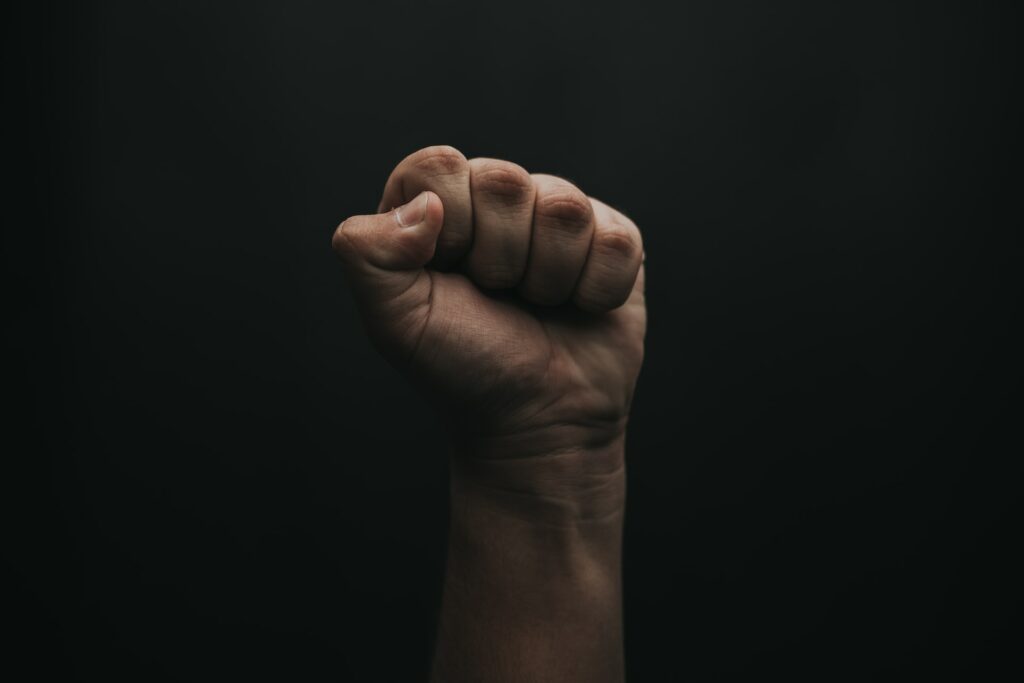


Do you find yourself subconsciously clenching your fist while in sleep? It is a common phenomenon that can affect people of all ages. This article explores the causes and solutions for clenching fists in sleep.
By understanding the underlying causes and solutions that are available, you can alleviate this problem and improve your sleep quality.
In most cases, clenching your fist in your sleep is perfectly normal. It is often a result of our brain activity while asleep where it stores and processes memories from the day. While it is usually nothing to worry about, if it is recurring or you wake up with pain, you may want to look into underlying causes.
Certain sleep disorders may cause you to clench your fists while you are asleep. Clenching fists in sleep is thought to be associated with a sleep disorder such as sleep bruxism. Sleep bruxism is defined as teeth grinding or teeth clenching while asleep. Both actions activate the sensorimotor cortex of the brain, contributing to muscle tension.
Underlying stress and anxiety are also a possibility as to why you may be clenching your fists while you are asleep. When you are stressed or anxious, your body tenses up involuntarily, including your hand muscles. Thus, you may find yourself clenching your fist while sleeping, reflecting your emotional turmoil.
Certain medications, especially those affecting the nervous system or muscles, can have side effects that include muscle clenching or spasms.
When clenched fists occur during sleep, they can be associated with different types of neurological conditions and have various consequences on physical, emotional, and cognitive well-being.
Conditions such as Parkinson’s disease, epilepsy, and other neurological disorders can cause involuntary muscle contractions, including fist clenching.
Here are some other types of medical conditions:
This rare neurological condition is characterized by emotional anxiety and by severe emotional distress and can lead to physical, emotional, and cognitive symptoms.
Rheumatoid arthritis can affect sleep and lead to clenched fists during sleep, causing muscle pain and cramping.
The palmar reflex can cause clenched fists during sleep, resulting in discomfort and muscle aches.
A condition that causes numbing, tingling, and pain in the hand and forearm. It may cause muscle contractions while asleep, leading to fist clenching.


When it comes to diagnosing the reason why your fist is clenched during sleep, you will need to determine what the underlying cause is. Whether it is stress or anxiety, physical conditions or medical conditions.
Typically, a healthcare professionals conduct a comprehensive evaluation of your medical history and symptoms. They’ll ask you about any known causes or triggers for clenching fists while sleeping and inquire about any underlying medical conditions or medications that may contribute to this behavior.
Physical examination is also a crucial part of the diagnostic process, where your doctor or healthcare professionals will observe your clenched fists and assess muscle tension. In some cases, additional tests such as X-rays, MRI scans, electromyography (EMG), and polysomnography may be conducted to further investigate the underlying causes of sleeping with clenched fists.

Looking for effective ways to manage clenched fists during sleep? There are several treatment and coping strategies that can help alleviate this issue. Here are three options to consider:
1. Use hand splints: Using hand splints can support a relaxed hand posture during sleep, preventing excessive fist clenching. This can help reduce muscle contractions during sleep and promote better sleep quality.
2. Practice relaxation techniques: Incorporating relaxation techniques into your bedtime routine, such as deep breathing exercises or progressive muscle relaxation, can help reduce stress and anxiety levels. This can minimize the likelihood of clenching fists during sleep.
3. Seek therapy or counseling: Therapy or counseling can provide emotional support and help you learn effective stress management techniques. By addressing underlying emotional distress, you can reduce clenched fists during sleep and improve overall well-being.
To alleviate clenched fists while sleeping, consider incorporating regular physical activity into your daily routine. Engaging in activities such as walking, jogging, or yoga can help manage muscle tension and promote better sleep quality. Regular exercise not only helps release built-up stress and anxiety but also improves overall physical and mental well-being.
Creating a soothing bedtime routine, avoiding stimulating activities before sleep, and ensuring a comfortable sleep environment are also important strategies for alleviating clenched fists while sleeping.
Remember to consult with a healthcare professional for personalized advice and guidance.
In conclusion, clenched fists during sleep can be caused by factors such as stress, anxiety, and certain medical conditions. Fortunately, in most cases, it is not harmful. By implementing the proper treatment options and coping strategies, you will be able to alleviate this problem and improve your sleep quality.
Anekar AA, Bordoni B. Palmar Grasp Reflex. [Updated 2022 Oct 24]. In: StatPearls [Internet]. Treasure Island (FL): StatPearls Publishing; 2024 Jan-. Available from: https://ncbi.nlm.nih.gov/books/NBK553133/
CDC (2024) Rheumatoid Arthritis [online]. Available at: https://www.cdc.gov/arthritis/rheumatoid-arthritis/index.html
Simmons, B. P., & Vasile, R. G. (1980). The clenched fist syndrome. The Journal of hand surgery, 5(5), 420–427. https://doi.org/10.1016/s0363-5023(80)80071-2